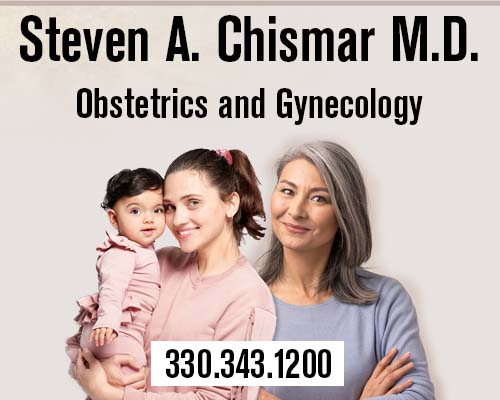Infertility
Infertility
Infertility
 Individuals sometimes have trouble conceiving children or carrying a pregnancy to full-term. According to the Centers for Disease Control and Prevention, infertility affects about 10% of women between the ages of 15-44 in the United States. But infertility problems do not only affect women! Men can also experience conditions that make conception difficult or impossible. According to the Centers for Disease Control, about 8% of adult men in the US cannot father a child. In about one-third of cases, each partner has potential health issues that can cause or contribute to infertility.
Individuals sometimes have trouble conceiving children or carrying a pregnancy to full-term. According to the Centers for Disease Control and Prevention, infertility affects about 10% of women between the ages of 15-44 in the United States. But infertility problems do not only affect women! Men can also experience conditions that make conception difficult or impossible. According to the Centers for Disease Control, about 8% of adult men in the US cannot father a child. In about one-third of cases, each partner has potential health issues that can cause or contribute to infertility.
The good news about infertility is that in many cases, the condition is not permanent. Treatments exist to increase the probability of conceiving a child and/or carrying a pregnancy to full-term.
To treat infertility, it is important for a doctor to discover potential factors in both partners that can cause or contribute to problems conceiving a child. Dr. Chismar can test for conditions that may prevent or reduce the possibility that a couple can conceive a child.
 Male Evaluation
Male Evaluation
While most infertility problems can be traced to the woman, almost 10% of chronic infertility can be attributed only to the male partner. To determine why a couple cannot conceive a child, Dr. Chismar will begin by conducting an evaluation of the male partner.
Common causes of chronic male infertility can include:
- Anatomical characteristics of the testicles
- A history of testicular trauma
- Medications or supplements that interfere with sperm production
- A medical history of cancer treatments that damaged or destroyed the testicles
- Chronic medical conditions like diabetes or autoimmune disorders
- Unhealthy habits, including excessive alcohol and recreational drug use; obesity; smoking; and anabolic steroid use
- Age
- Supplemental testosterone use
- Radiation exposure
- Exposure to high temperature environments
- Exposure to environmental toxins
- Hormonal disorders
- Genetic disorders

In some cases, treatment, behavioral changes, or changes to a man’s environment can successfully resolve or improve male infertility. In other cases, no treatments are available. In that case, Dr. Chismar may suggest alternatives, such as adoption or the use of donated sperm to conceive.
 Female Evaluation
Female Evaluation
Regardless of the outcome of the male partner’s evaluation, Dr. Chismar will also conduct an evaluation of the female partner. This is because infertility indicators can be found in both partners in about one-third of all couples who are unable to conceive a child.
 A physical evaluation can include:
A physical evaluation can include:
- Ultrasound (to visualize all reproductive organs)
- Hysterosalpingogram (to examine the uterus and fallopian tubes)
- Laboratory testing (to identify undiagnosed hormonal, endocrine and metabolic conditions)
- Ovulation testing (to verify that the ovaries have and can ripen eggs properly)
- Laparoscopy (to visualize the abdominal anatomy and treat certain conditions)
More than half of couples experience infertility issues only in the female partner. A female evaluation will consist of determining whether the woman’s reproductive organs (uterus, ovaries, fallopian tubes, and cervix) are fully functional. There are many, many conditions that can cause one or more of these organs to malfunction or otherwise frustrate conception. They include:
- Anatomical defects in or damage to one or more reproductive organs
- Uterine fibroids
- Endometriosis
- Trauma or damage to the reproductive organs
- Untreated sexually transmitted infections
- Medical conditions like Polycystic Ovary Syndrome (PCOS)
- Hormonal imbalances that impact a woman’s menstrual cycle
- Excessive exercising, eating disorders or high stress conditions
- Improper glandular function
- Age
- Smoking
- Excessive alcohol or recreational drug use
As with men, some causes of infertility in women are treatable. Others have no effective treatments. For women who are unable to conceive, Dr. Chismar can suggest alternatives to conception, including in vitro fertilization (IVF), surrogacy and/or adoption.
 Treatment and Counseling
Treatment and Counseling
When the cause of infertility can be identified and treated, Dr. Chismar will recommend a treatment plan to resolve issues or increase a couple’s chances of conception. Regardless of whether a cause can be found and/or treated, counseling is an important element of a couple’s infertility journey. Infertility can take an emotional, physical, and financial toll on couples. Once the evaluations are complete, a couple must work together to either resolve issues that prevent them from conceiving or formulate a new plan for themselves and their family.
 Fertility Specialist Referral
Fertility Specialist Referral
Resolving fertility issues are sometimes beyond the scope of Dr. Chismar’s practice. When conception must include specialized fertility treatments for either partner, Dr. Chismar will refer those patients to a medical doctor who specializes in treating and/or resolving fertility issues.
CLIENT TESTIMONIAL: Choosing Dr. Chismar was a blessing to our growing family because besides being a knowledgeable, calm doctor who makes confident but conservative decisions, his office staff also treats you like family. It always felt like a joy to come visit the office! Meaghan and Maggie were such an encouragement and help, as they shared their knowledge and experience to new mothers. The whole group, the doctor, the office staff, and the nurse, was kind and efficient. They have been a blessing to our family and the community and we are grateful for what they do and how they have chosen to do it!
CLIENT TESTIMONIAL: Choosing Dr. Chismar was a blessing to our growing family because besides being a knowledgeable, calm doctor who makes confident but conservative decisions, his office staff also treats you like family. It always felt like a joy to come visit the office! Meaghan and Maggie were such an encouragement and help, as they shared their knowledge and experience to new mothers. The whole group, the doctor, the office staff, and the nurse, was kind and efficient. They have been a blessing to our family and the community and we are grateful for what they do and how they have chosen to do it!


